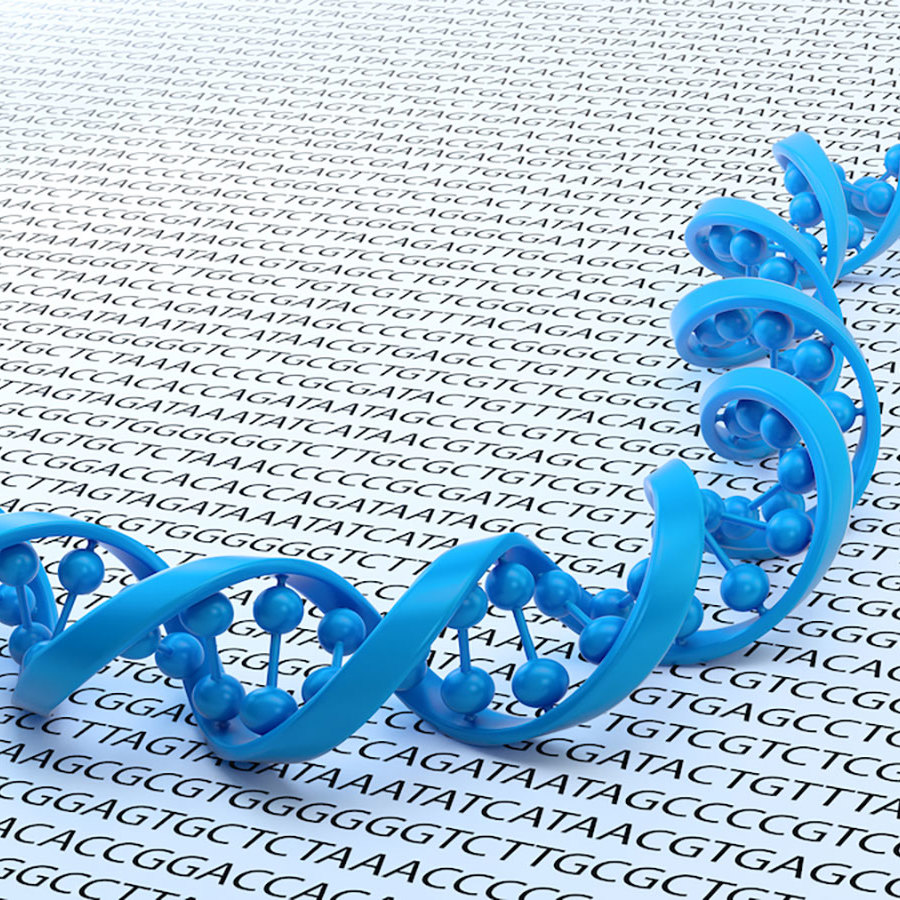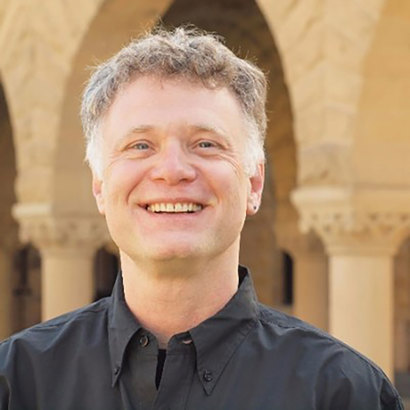
Does my DNA last forever?
July 23, 2009

- Related Topics:
- Ancient DNA,
- DNA basics
A curious adult from California asks:
“Does my DNA last forever?”
A person’s DNA is a one of a kind thing. Your complete set of DNA has never been seen before. And it will probably never be seen again.
Once you die, that unique DNA will start to decay. It may take tens of thousands of years, but eventually it will be gone. Your DNA won’t last forever.
Of course this is only true for your complete set of DNA. Pieces of it will be floating in the gene pool long after you're gone.
Bits of your DNA will live on in any of your kids and their kids and all of their descendants. Bits will also live on in your brothers, sisters, aunts, uncles, cousins, and any other relatives out there.
So if you do nothing, your DNA will only live on as fragments in relatives. But there are ways to keep your complete set of DNA around forever. None are very practical but they are possible.
Forever DNA
Keeping your DNA around forever is going to need the help of a scientist. And a long term storage facility.
One way to preserve your DNA is to store it in alcohol in a lab freezer somewhere. Another way is if scientists make a stem cell line from one of your cells and freeze those stem cells away.
But either of these would undoubtedly be expensive. And eventually, something will go wrong or the scientists will need the storage space and your stored DNA will be lost.
Another possibility is that some scientist clones you and creates a never ending series of clones (think Duncan Idaho from the Dune Trilogy). As one of you dies off, a new clone with your DNA would be placed in a surrogate mother and a new you would be grown.
Except of course it won’t really be you. The clone will have your DNA but none of your experiences or memories. And the environment the clone grows up in will be different from yours as well.
The end result will be your DNA living on. But not you.

So there are ways to keep your DNA around forever but as you can see, they aren’t very practical or useful. Which means that the unique combination of A’s, C’s, G’s and T’s that make up you will probably be gone forever. These stopgap measures would just delay the inevitable.
Of course none of this would need to be done if your DNA were passed down to your kids in a complete form. Or if sometime in the future your DNA could reappear from the billions of miles of human DNA here on Earth.
But neither is going to happen. The first would only happen if we could reproduce asexually (which, unlike SpongeBob, we can’t). And the second won’t happen because of how DNA is passed down from generation to generation.
Blended DNA
As you probably already know, your DNA was passed down to you from your parents. You got half from your mom and half from your dad.
This DNA was actually passed down in the form of chromosomes. You, like most other humans, probably have 23 pairs of chromosomes. This means you have two chromosome 1s, two chromosome 2s, etc. One chromosome of each pair came from your mom and the other from your dad.
But the chromosome 1 you got from your mom isn't the same as either of your mom’s. Through something called recombination, your mother’s two copies of chromosome 1 mix and match with each other to create a huge number of new chromosome 1’s. Each is stored in an egg and you got one of these new chromosomes.
The same is true for all of your other chromosomes from both your mom and your dad. So even at the chromosome level, your DNA is unique. It is not the same as your parents or any of your brothers and sisters.

And the DNA you pass on to your kids is not the same as yours. It has pieces that are the same but they are mixed and matched in new combinations. And when your kids have kids, their chromosomes will mix and match so that even more of your DNA will be lost.
Because of all this mixing and diluting, your exact DNA won’t reappear from your descendants. And with over 6 billion letters of DNA, the odds of your set of DNA happening by chance again are essentially zero.
So your DNA is here for a very short time. Take care of it and enjoy the unique person it helped make – you.

Author: Dr. Barry Starr
Barry served as The Tech Geneticist from 2002-2018. He founded Ask-a-Geneticist, answered thousands of questions submitted by people from all around the world, and oversaw and edited all articles published during his tenure. AAG is part of the Stanford at The Tech program, which brings Stanford scientists to The Tech to answer questions for this site, as well as to run science activities with visitors at The Tech Interactive in downtown San Jose.
 Skip Navigation
Skip Navigation
